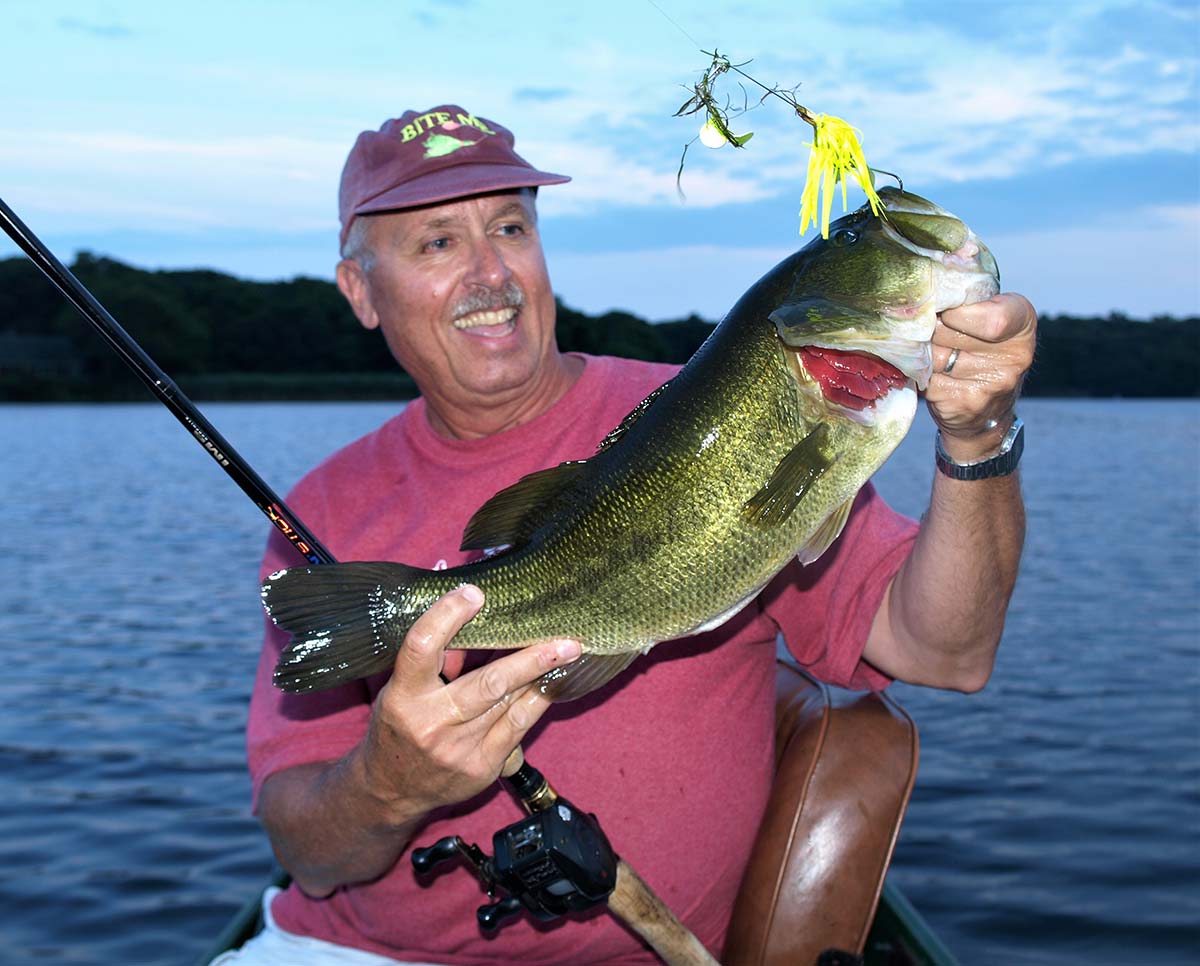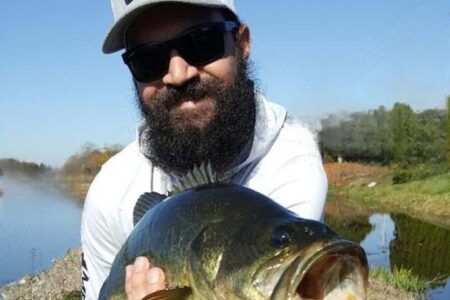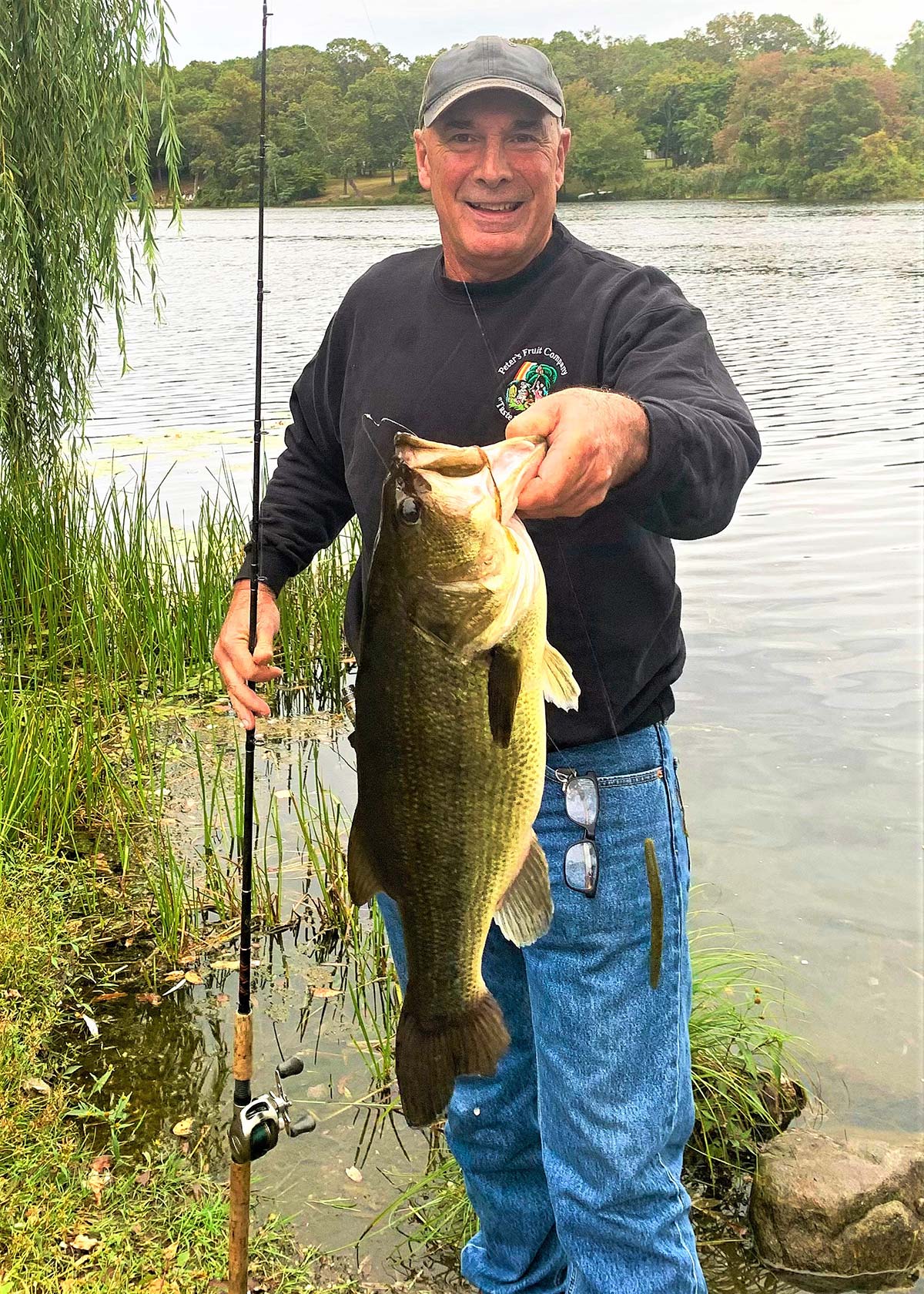
There is definitely something to be said for occasionally taking the road less traveled.
Modern anglers tend to gravitate toward perceived hot lakes and ponds and avoid those that have fallen out of favor. This is especially relevant today, where social media and mobile internet connections allow instantaneous reporting of where the best and most active bites are happening. Yet, sometimes those neglected waters flying under the digital radar hold the grandest of surprises. Therefore, something must be said for occasionally taking the road less traveled. Granted, there are situations when certain lakes experience eutrophication resulting in excessive vegetation and eventual oxygen depletion, and that development can dramatically affect the overall ecosystem and the quality of fishing. In severe cases, such lakes can almost appear dead or, at a minimum, barren of any meaningful and catchable populations of fish. This is particularly apparent on small bodies of water that receive a lot of angling pressure. The convergence of such events leads some anglers to conclude erroneously that the lake or pond is fished out and not worth their time. But that is frequently far from reality. In situations like that, I am very much reminded of a line from Jurassic Park spoken by the character Dr. Ian Malcolm. While discussing the presumed inability of genetically-altered dinosaurs to breed, Dr. Malcolm offered a compelling opinion: “Life cannot be contained. Life breaks free. Life finds a way.” Anyone who has spent time recreating in the outdoors has seen this principle at work. The process of natural selection, species adaptation, and survival instincts can individually and collectively produce awe-inspiring results. Therefore, it should come as no surprise that largemouth bass faced with adverse and/or less-than-ideal habitat conditions can continue to endure and in some instances, thrive, despite the odds. It is the wise angler that considers this when selecting places to fish. One of the most appreciated benefits of fishing lakes that most anglers have abandoned is the ability to cast to unpressured fish with a relative degree of solitude. One personal story highlights this possibility better than any other scenario.
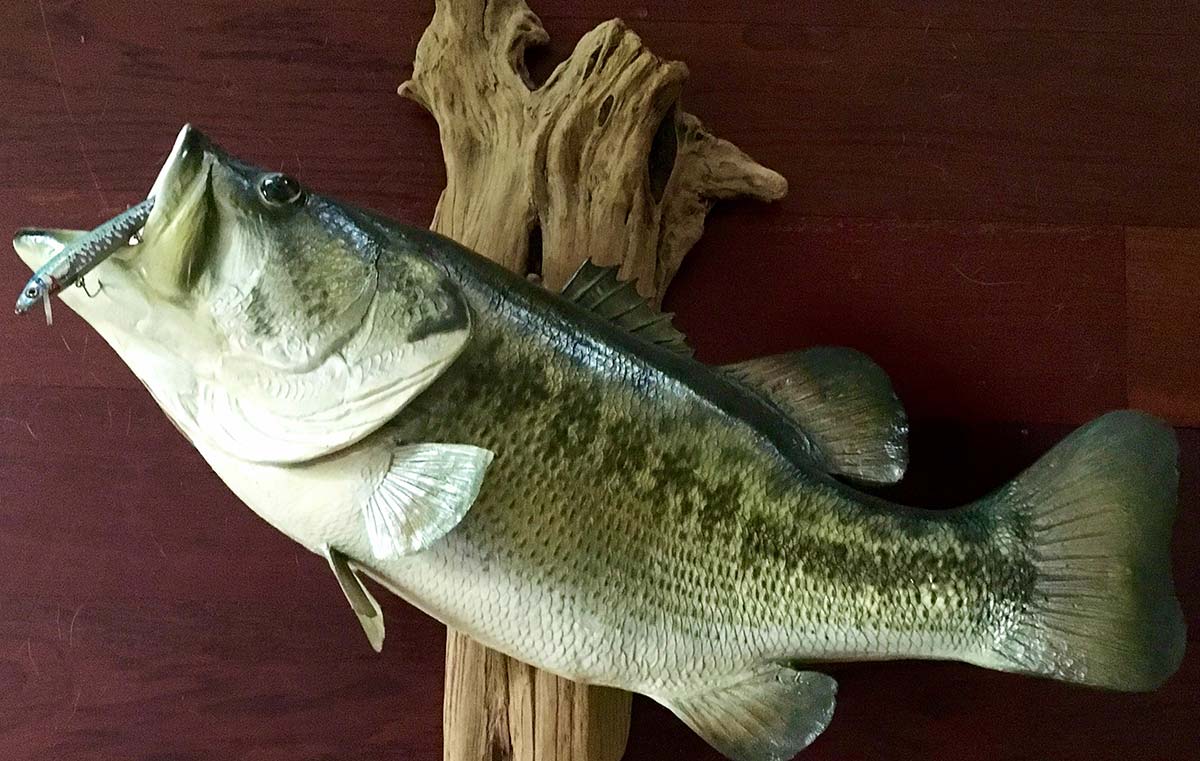
Case In Point
In the early 1980s, a friend and I had the opportunity to fish a remote pond that was believed to be barren of any largemouth bass. Yet, it had a reputation among a small circle of anglers for relinquishing sizeable chain pickerel. Due to the difficulty getting to this pond, and its alleged lack of any largemouth bass, the pond received minimal angling pressure. But for us, the appeal of exploring a generally underfished and inaccessible body of water was motivation enough, regardless of the variety of fish we would catch. During the first few hours of fishing this isolated pond, we caught and released several exceptional pickerel.
Almost two-dozen sizeable fish had been caught and released. But those pickerel were just the warmup act for what would come next. The next fish to strike the artificial bait was our first big surprise; a healthy and substantial bass that registered an even 6 pounds. Not a bad fish from a pond that supposedly contained no bass. Once that fish was released, we resumed fishing, and the magic continued. By the end of our day on the waters of this “doesn’t have any bass” pond, we caught and released six exceptional largemouth bass that ranged in size from 5-3/4 pounds up to a northern leviathan in excess of 9 pounds. The majority of those bass were in the 6 and 7-pound weight class. The biggest of the fish still remains as my largest northeastern bass. It is a bass that has occupied my thoughts and imagination for a very long time.
As one might imagine, a fishing day of that magnitude would act as a magnetic draw for additional return trips. I fished the pond several more times that season. Although a full repeat of the first remarkable outing was never replicated, several other quality bass were subsequently caught and released. Each trip to that pond produced solid results, and no other anglers were ever anywhere in sight. One couldn’t ask for more enjoyable days on the water — remoteness, solitude, quality bass fishing — all from a pond most believed wasn’t worth the effort to fish. But sadly, my tenure on the pond was limited. Not long after that fateful fishing trip, I relocated to another state to follow a corporate career. Left behind were many beloved fishing and outdoor connections, none of which were more significant than that small pond and its unknown bass. It would be more than 30 years until I once again returned to test the waters of this pond.
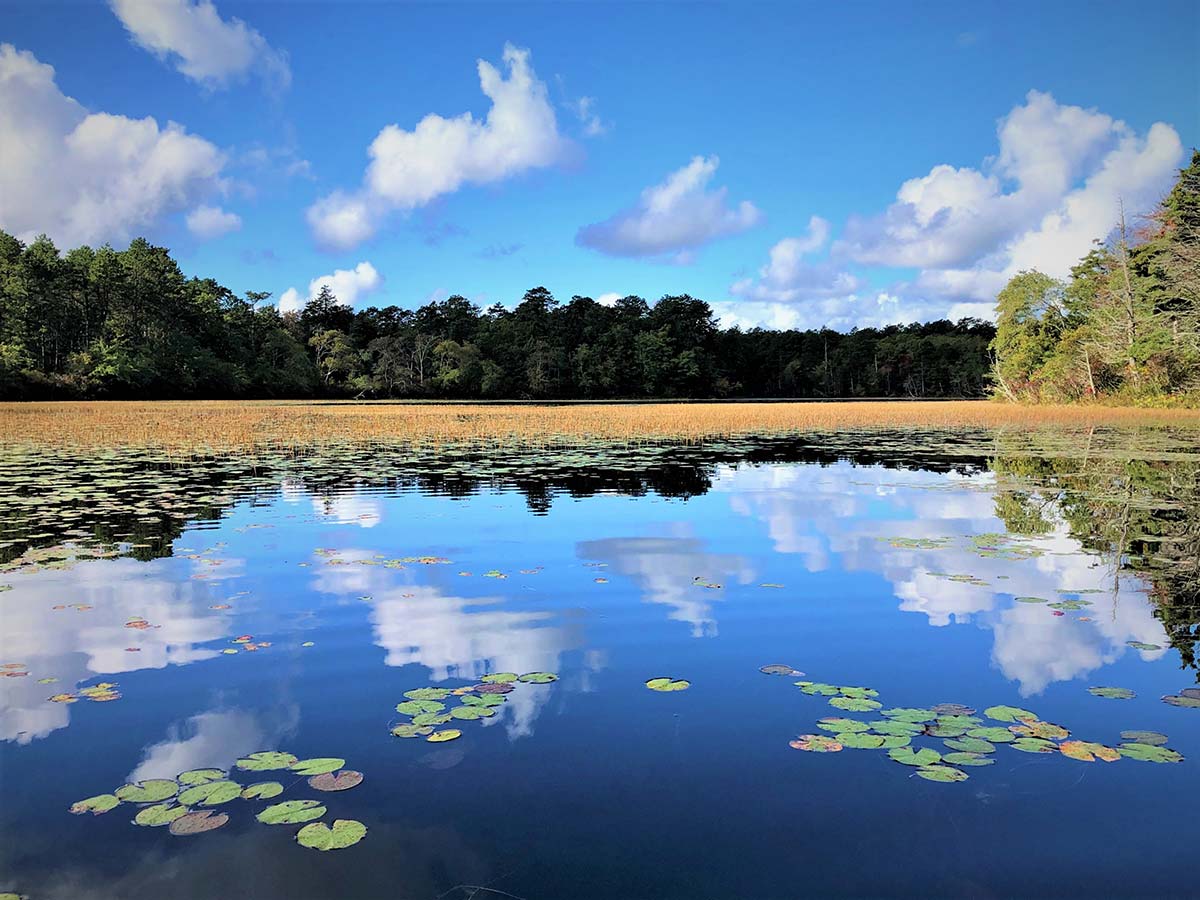
Revisiting A Honey Hole
As I eased the kayak into the pond following a three-decade hiatus, the first thought that struck me was that I was back here, alone again, embarking on a new journey of rediscovery. Visions of big bass swirled in my head, yet I’d figured that the odds of a repeat blockbuster day of decades ago were certainly not in my favor. I’d heard that the pond had gained somewhat in reputation as others had the opportunity to sample the fishing, yet it was by no means heavily fished. Many viewed it as more of a scenic stop on a hiking trail rather than a quality fishing hole. In addition, this puddle in the woods did not relinquish its bounty easily, so anglers looking for quick and easy catches steered clear. And on this day, it looked like I’d once again have the place all to myself. As is typical of small ponds in the Northeast, heavy summer vegetation and lily pads filled the pond’s perimeter and all of its arms and coves. Although I would eventually fish mostly open water, I decided to start casting in the thick of the pads. Bass will often retreat to the cover and comfort of pads during the heat of the summer months. This makes for somewhat tough fishing, but if bass are hanging out among the pads, the rewards could be well worth the effort. That was exactly how things turned out for me during this reunion trip.
Maneuvering the kayak in and out of dense lily pads, I dropped the artificial plastic bait into all likely-looking open pockets of water. A couple of small bass obliged, prompting me to wonder if they just might be the progeny of those big bass of long ago. That thought gave me a sense of continuity and a connection to the past. It was a good feeling. As the kayak silently glided around a bend in the shoreline, I once again felt that unmistakable magnetic pull. There before me was a perfect blend of structure and bass habitat. This spot had to be fished. With the kayak positioned to offer optimum coverage of the area, a precise cast was made. That was all it took. No sooner had the plastic bait hit its mark and begun to sink than the telltale ‘tap-tap’ was felt. The line moved off across the opening in the pads, and as the hook was set, the bass headed toward open water. That was a fortunate move for me and a mistake by the bass, for had it reversed course and gone into the dense tangle of cover, the day’s premier prize would most likely have been lost. Fate had surely intervened on my behalf. This was a big fish. Its bulk and resistance against the rod were felt immediately. After an intense contest of give and take, and a bit of heavy breathing, the big bass lay draped across the full beam of the kayak with much of its mass resting on my legs. I could hardly believe what had just happened. The bass weighed in at 7 pounds, 14 ounces. The fish had bridged an almost 38-year time span and reunited me with a time and place that had been permanently etched on my mind. It was as if I had never left, and like seeing an old friend after a long absence. I just picked up where they left off. I placed my new friend back into the water and gave thanks for the unanticipated encounter. The day had developed into the second-best fishing outing this neglected pond gifted me.
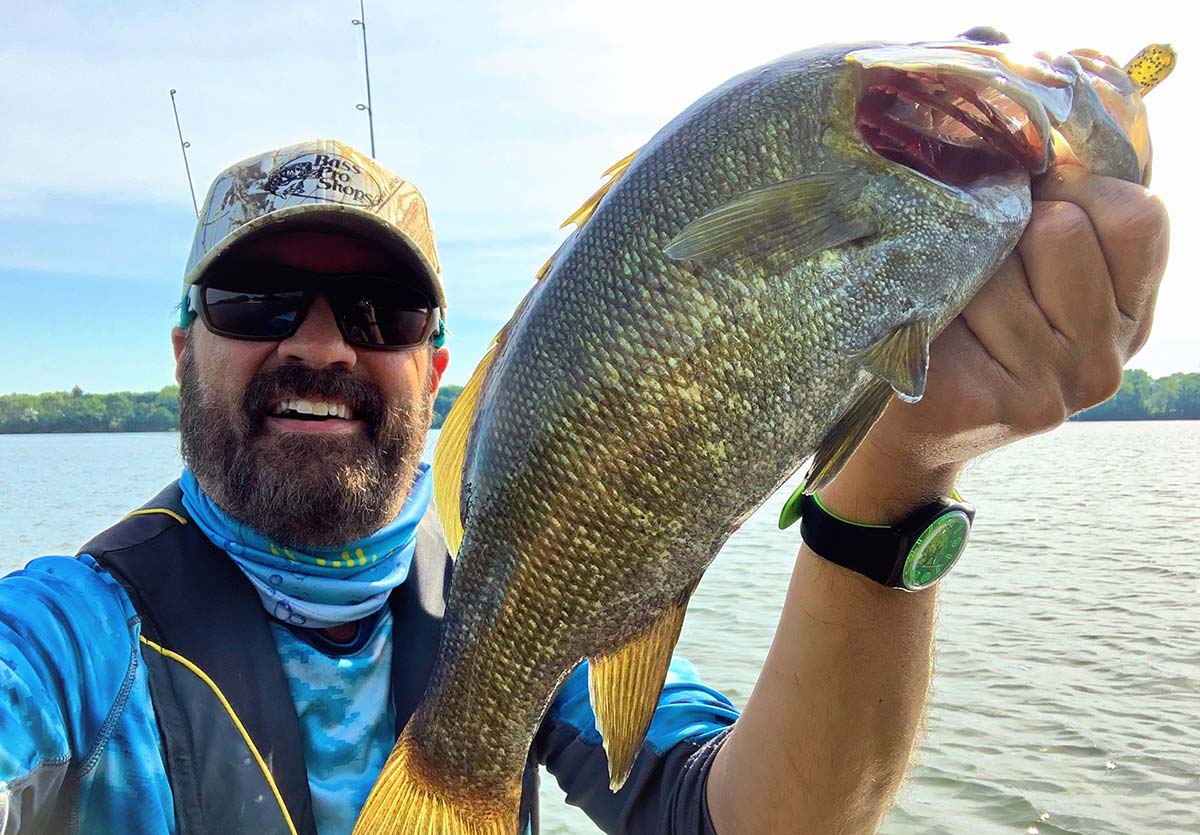
Returning To A Former State
One other example of surprise big bass fishing is worthy of mention and applies no matter where you fish. I first started fishing the ponds and lakes on Long Island in the early 1970s. At that time, several of the largest bodies of water received most of the angling attention. This was an era that marked the beginning of the B.A.S.S. phenomenon, and local interest in black bass fishing peaked, along with local tournaments on those bodies of water. Over time, and with the growing popularity of bass fishing, those waters succumbed to a disproportionate amount of angling pressure to a point where there was a falloff in the quality and intensity of the fishing effort. Eventually, one of those lakes fell out of favor as anglers moved on to more productive locations. Following my brief hiatus from that lake, I embarked upon a return weekend trip just to get my personal update on the lake’s status. I fished the lake for two consecutive days. Considering the focus of this article, you just might be able to guess how the trip turned out. This overfished and underutilized lake surrendered a fine catch of largemouth bass, including a number of bass that exceeded 5 pounds, with one fish pulling the scale to 6 pounds, 8 ounces. Was this result simply a matter of good luck and timing, or was it an indication that the lake had returned to its old form? With the benefit of hindsight, the day’s outcome was a combination of prime seasonal timing, unpressured fish, and a revitalized lake that had the chance to recover from some minor ailments.
There is no doubt that nature does indeed find its own way when challenged with adversity. Even in extreme cases, such as major oil spills, recoveries happen. Although some of those disasters require the helping hand of the same humanity that caused the problem in the first place, the natural world eventually takes charge to help correct itself. And so it is with lakes and ponds that undergo cyclical changes. Left to their own natural devices, those lakes can often remedy the situation if the effects are not too severe. And that is the singular reason why anglers should never write off any body of water that was once productive and had fallen from grace. The fundamentals of Darwinian survival take over and a species does what it can to perpetuate its kind, and revivals are quite common. I’ve come to embrace the so-called down-and-out ponds as part of my tactical angling regimen and make it a point to schedule time on those waters. That said, I do apply a few principles and practices when fishing the presumed fished-out lakes. The first consideration is to put the odds in your favor. This can be done by scheduling your trips to coincide with peak times of the season or the prime times of the day. While bass can be caught throughout the day and throughout the seasons, concentrating on periods of typically heightened activity will help to cut down on time needed to determine if bass are still maintaining a solid presence in the environment. This tactic does not preclude one from success during off-peak periods. Some of my most productive days on these sorts of ponds have occurred during the dog days of summer, so it pays to mix up your game and vary the timing of your outings. It also pays to give a rebounding lake or pond more than one try. I have adopted a general rule that has me returning to such locations for three successive outings to ascertain viability. Another beneficial practice when fishing these areas is to cover as much water as possible and to focus on the best habitat and structure that the lake has to offer. As a lake or pond undergoes changes and bass populations adjust to those alterations, their habits, movements, and patterns might change as well. It would also be beneficial to use a wide variety of lures to zone in on preferences. Although bass anglers are well known for their proclivity to throw many different forms of artificial baits, some such anglers fixate on only one or two confidence baits. But when re-exploring “fished-out” lakes, various baits tend to be the best choice until new bite patterns are figured out. As an interesting aside, I found that on a number of occasions, old-school, retro baits were the ones that got the job done. Therefore, it also pays to think expansively when chucking your lures into the wood and weeds.
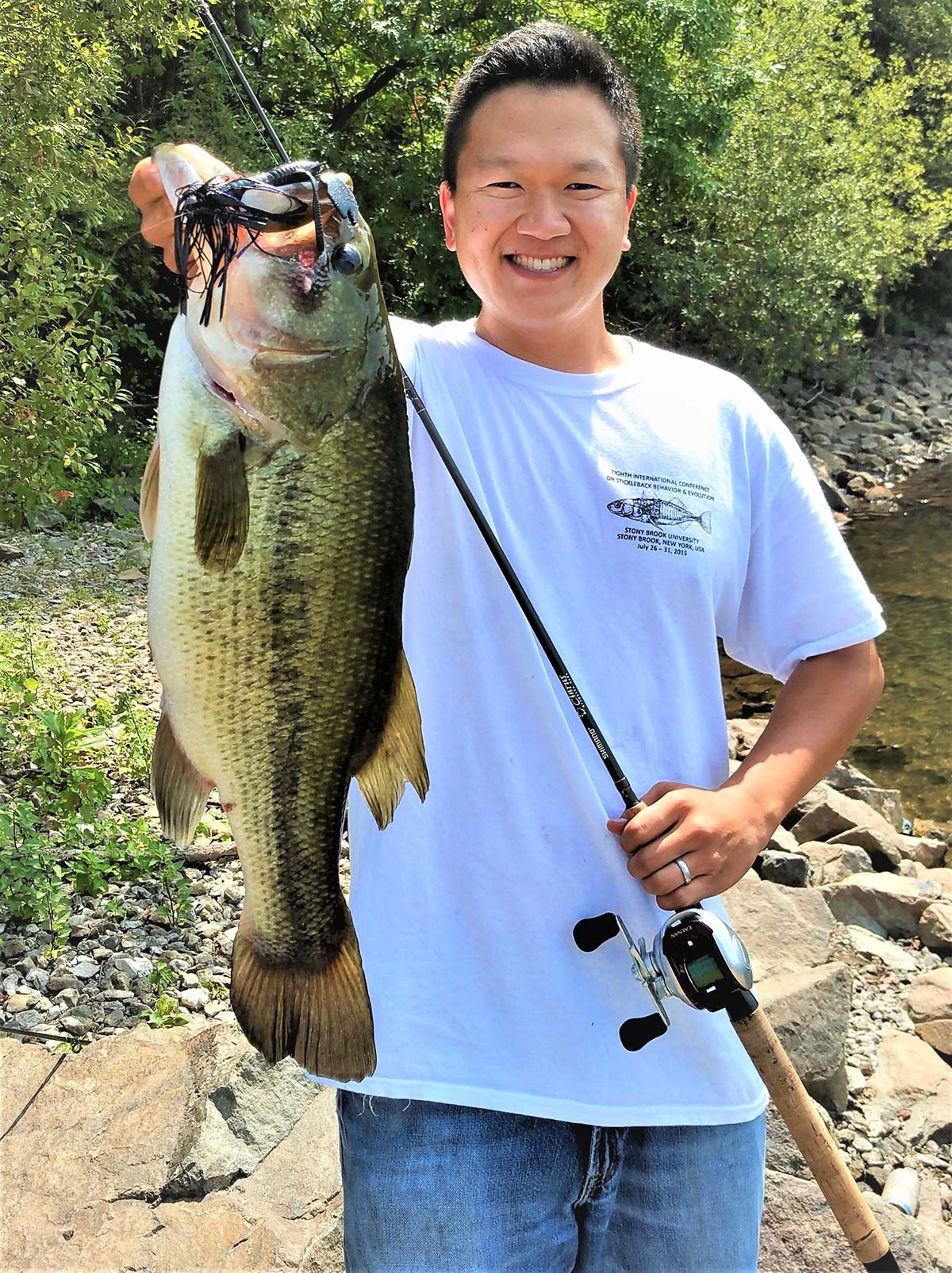
Expect The Unexpected
While some of life’s greatest gifts do indeed come from unanticipated sources, the most unforgettable often occur when least expected. Such is frequently the case when it comes to fishing activities. Over a long and productive angling career, I have had many impressive happenings that astonish me with startling and sometimes bewildering surprises. Yet, none have been more memorable than events involving catching largemouth bass from lakes and ponds that were believed to be fished out and devoid of bass. Over time, these bodies of water have relinquished some of the largest bass I have caught throughout the Northeast. The potential rewards of revisiting these ignored ponds are well worth the effort. Given past experiences and future potential, it makes absolute sense to include a couple of assumed fished-out bodies of water on your calendars for the upcoming season. The surprises just might amaze you and change your perceptions and outlook on these perceived second-class fishing holes.
